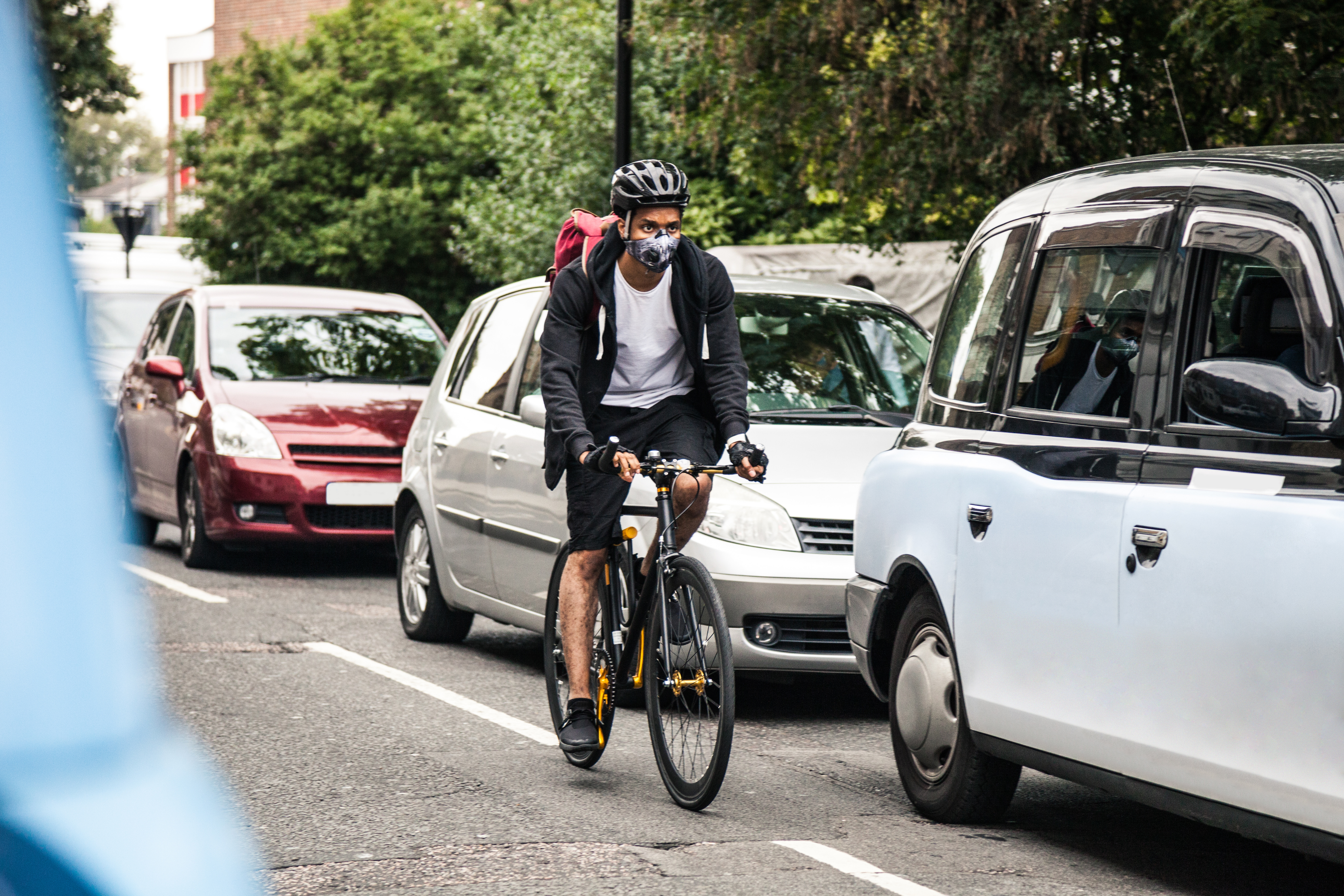Double the maximum time spent in prison for drivers who hit cyclists, parliamentary report says
Maximum sentence for dangerous driving should be increased from two to four years as British Cycling calls for end to "hazardous leniency"


The latest race content, interviews, features, reviews and expert buying guides, direct to your inbox!
You are now subscribed
Your newsletter sign-up was successful
Drivers who hit cyclists should face longer prison sentences and the rules around driving bans should be tightened, according to a parliamentary report due to be published on Monday.
The All-Party Parliamentary Group for Cycling and Walking (APPGCW) is set to publish Road Justice on Monday afternoon, which includes ten recommendations which it believes are necessary in order to see "true road justice".
The recommendations include increasing the maximum sentence for dangerous driving to four years - from two at present; reviewing the "exceptional hardship" loophole, by which drivers with 12 points successfully argue against disqualification; compulsory re-testing for disqualified drivers; and escalating penalties for repeat traffic offenders.
‘’I doubt that there is a single Member of Parliament who has not had a tragic incident of road violence in their constituency," Ruth Cadbury, a Labour MP and co-chair of the APPGCW said in a statement. "Sadly, the nature of those incidents is all too often vastly different from the consequences for those who are responsible.
‘’This report is a key step in our work to redress that balance and ensure that there is true road justice. Doing so is essential if we are to unlock the walking, cycling and wheeling potential, and reap the associated benefits of that.
‘’We will be campaigning hard in Parliament for change on the recommendations within the report, and welcome support from those who share our commitment to this issue.’’
‘’One of the key barriers to wider uptake [of active travel] is fear over the safety of our roads and the perception that dangerous driving has become all too common," Selaine Saxby, a Conservative MP who is the other co-chair of the group, said. "This piece of work has been an important undertaking that has highlighted some of the appalling incidents of road violence."
The latest race content, interviews, features, reviews and expert buying guides, direct to your inbox!
‘’We hope it will mark a turning point, as we work towards delivering true road justice.’’
According to the report, almost a quarter (23%) of drivers who amass 12 penalty points successfully argue against disqualification on grounds of exceptional hardship.
It says: "This is despite revised guidance, and indicates a clear problem with either the current definition, or its application. The resulting consequence is that many drivers who could be serving a ban are still out on the roads, with increased risk to all other road users."
On longer sentences for dangerous driving, the report argues: "In addition to being a very useful tool, a car has the potential to be a lethal weapon. And those who drive dangerously (as defined by the offence) are effectively wielding a lethal weapon. The maximum sentence for having an offensive weapon (or bladed article) in a public place without good reason or lawful excuse is currently four years.
"We recommend that the Government increase the maximum sentence for dangerous driving to four years."
The report uses data to show that many of those convicted for driving while disqualified - 47% - had at least one previous conviction for the offence, while 30% had two or more.
"The roads would be made safer if serial offenders were less able repeatedly to contravene the law," it argues. "We therefore recommend the Government consider the introduction of escalating penalties for repeat traffic offences."
British Cycling and its legal partners Leigh Day co-sponsored the report. BC's CEO Jon Dutton said that they were "all too aware of the hazardous leniency embedded in our current legal system".
“Through our work with Leigh Day to support British Cycling members involved in incidents on the road, we are all too aware of the hazardous leniency embedded in our current legal system, which enables even the most persistent and reckless offenders to evade justice," Dutton said.
“We know that cycling has a vital role to play helping people to lead more active lives, reducing congestion in our towns and cities and connecting communities – but for too long its potential has been hamstrung by the pervasive and malevolent impact of dangerous driving. As we look ahead to next year’s General Election, we hope that this report will act as a catalyst for discussion and developing solutions.”
Cycling UK, one of the parties which gave evidence to the parliamentary group, called for the government to make good its promise to review driving offences and penalties in light of the report.
“It’s almost ten years since the Justice Secretary promised that the Government would carry out a full review of all driving offences and penalties, but we’re still waiting and that’s not good enough," Sarah McMonagle, Cycling UK's director of external affairs, said on Monday. "It’s imperative that the current Justice Minister Alex Chalk reads this report and reflects on his own contribution as co-chair of this All-Party Group back in 2017, when he called on the Ministry of Justice to look at the declining use of disqualification powers and how the offences of careless and dangerous driving, and the penalties for those offences, were being used.
“Ten years on, it’s time the Ministry of Justice moved forward with a Government commitment that had widespread cross-party support at the time. To continue to delay would be a huge betrayal of the victims of road crime.”
The APPGCW's ten recommendations
- Escalating penalties for repeated offences
- Compulsory re-testing
- Increased maximum sentence for dangerous driving and fuller use of Police bail powers
- Exceptional hardship to be truly exceptional
- Removal of tolerances in speed enforcement
- Consistently thorough investigation of serious collisions
- Standardising third-party reporting systems
- A UK Commissioner for Road-Danger Reduction
- Treating crash victims as victims of crime
- Widen understanding of the Highway Code

Adam is Cycling Weekly’s news editor – his greatest love is road racing but as long as he is cycling, he's happy. Before joining CW in 2021 he spent two years writing for Procycling. He's usually out and about on the roads of Bristol and its surrounds.
Before cycling took over his professional life, he covered ecclesiastical matters at the world’s largest Anglican newspaper and politics at Business Insider. Don't ask how that is related to riding bikes.